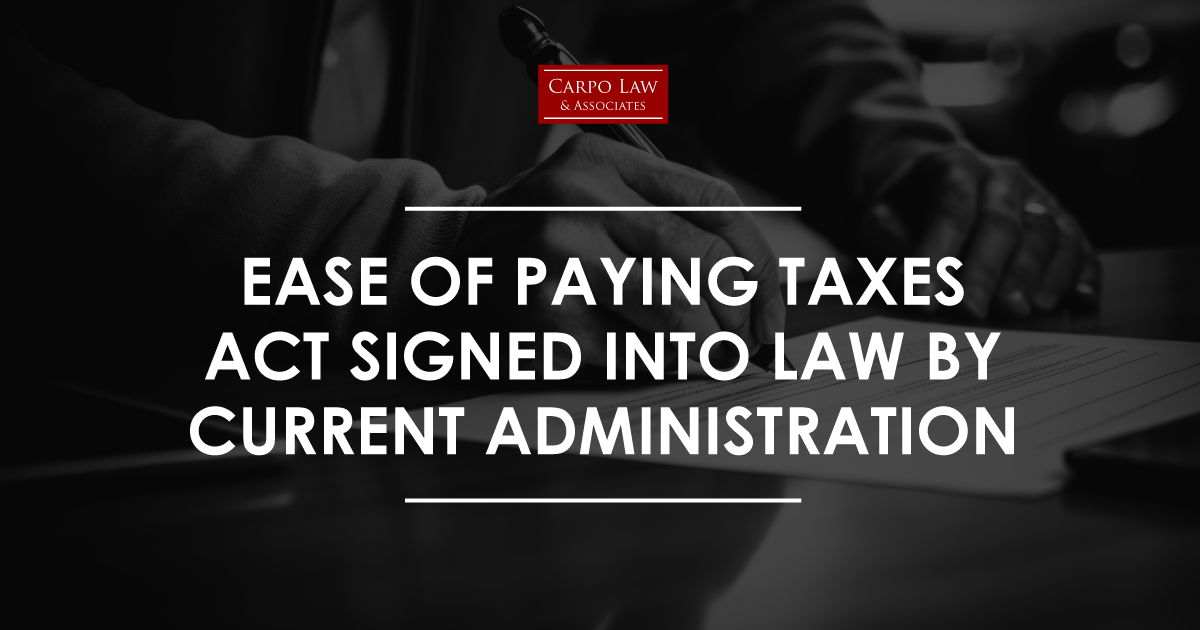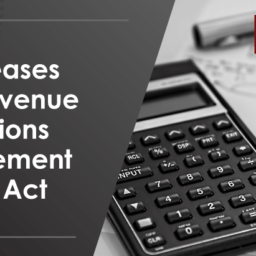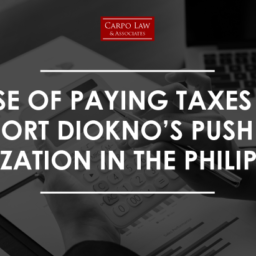
Ease of Paying Taxes Act Signed Into Law by Current Administration
The current administration signed into law the Ease of Paying Taxes Act, also known as Republic Act (RA) 11976, which attempts to enhance taxpayer rights while modernizing and improving the efficacy and efficiency of tax administration.
In a statement on Sunday, the Presidential Communications Office (PCO) noted that during the State of the Nation Address in 2022 and 2023, the Ease of Paying Taxes Act was listed as a key piece of legislation.
PCO mentioned, “The law allows the government to capture as many taxpayers as possible into the tax net by streamlining the system and minimizing the burden on taxpayers, increasing the country’s revenue collection in the long run.”
It also replaces outdated procedures, implements best practices, and updates the tax system in the Philippines.
Some of RA 11976’s key provisions are the classification of taxpayers into micro, small, medium, and large; electronic or manual filing of returns and payment taxes either to the Bureau of Internal Revenue (BIR), through any authorized agent bank or authorized tax software provider; option to pay internal revenue taxes removal to the City or Municipal Treasurer; elimination of the distinction between documentation and basis of sales of goods and services; and classification of value-added tax (VAT) refund claims into low, medium and high-risk.
Through the implementation of the Ease of Paying Taxes and Digitalization Roadmap, the law guarantees the availability of registration facilities to non-Philippine resident taxpayers. It also promotes and assists taxpayers in tax processes, streamlines documentation requirements, and digitized BIR services.
The law also raises the amount for the mandatory issuance of receipts for each sale and transfer of goods and services from ₱100 to ₱500 and sets a 180-day deadline for refund of erroneous or unlawful tax collection.
PCO cited to comply with the law. The BIR must implement an integrated digitalization strategy and offer end-to-end solutions that benefit taxpayers.
This includes embracing integrated and automated systems for facilitating basic tax services, setting up electronic and online systems for data and information exchange between offices and departments, streamlining procedures by adopting automation and digitalization of BIR services, and building up BIR’s technology capabilities.
The implementing rules and regulations for RA 11976 will be released ninety days after the Act goes into effect, following the Finance Secretary’s engagement with the BIR and the private sector.
The law will be effective fifteen days after it is published in a newspaper or the Official Gazette.




